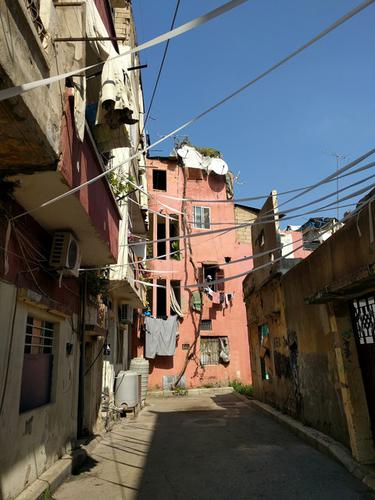Our official English website, www.x-mol.net, welcomes your
feedback! (Note: you will need to create a separate account there.)
Solicited diary methods with urban refugee women: Ethical and practical considerations
Area ( IF 1.6 ) Pub Date : 2020-12-22 , DOI: 10.1111/area.12694 Sarah Linn 1
Area ( IF 1.6 ) Pub Date : 2020-12-22 , DOI: 10.1111/area.12694 Sarah Linn 1
Affiliation

|
Urban refugee women are a challenging research population to contact as they typically prefer to remain discreet and anonymous in their host cities due to concerns over their status and security. Building trust and rapport can be challenging and researchers need to balance issues such as negotiating gatekeepers and time scales alongside ethical demands to do no harm and avoid extractive and exploitative research. As a result, refugee women’s individual and quotidian experiences are rarely examined and foregrounded and their emotional responses to their host cities and host communities are overlooked. In light of this, considered methods, such as solicited diaries, which allow refugees the space and time to reflect on their emotional experiences and these associations with space and place, could be beneficial. However, there has been little written on the use of this method with refugee participants in deeply marginalised circumstances. Alongside some practical and ethical considerations of using solicited diary methods with urban refugee women, this paper considers two main issues. First, the practical role that instructions play in guiding participant responses and engagement in the diary process, and second the ways in which diaries can illuminate the relationship between emotion and spatiality. Diaries were found to have much to offer in advocating refugees as knowledge holders, whereby written excerpts act as “evidence” of their experiences. Analysed alongside other qualitative methods, and if used appropriately and considerately with refugee participants, diaries have the potential to be insightful, empowering, and cathartic.
中文翻译:

与城市难民妇女的请求日记方法:伦理和实际考虑
城市难民妇女是一个具有挑战性的研究人群,因为她们出于对自身地位和安全的担忧,通常更愿意在所在城市保持谨慎和匿名。建立信任和融洽可能具有挑战性,研究人员需要在诸如谈判守门人和时间尺度等问题与道德要求之间取得平衡,以不造成伤害并避免采掘性和剥削性研究。因此,难民妇女的个人和日常经历很少被审查和强调,她们对所在城市和所在社区的情绪反应也被忽视。有鉴于此,经过深思熟虑的方法,例如征集日记,让难民有空间和时间反思他们的情感体验以及这些与空间和地点的关联,可能是有益的。然而,关于对处于极度边缘化环境中的难民参与者使用这种方法的文章很少。除了对城市难民妇女使用征集日记方法的一些实际和伦理考虑之外,本文还考虑了两个主要问题。首先,指令在指导参与者在日记过程中的反应和参与方面发挥的实际作用,其次是日记可以阐明情感和空间之间关系的方式。日记被发现在提倡难民作为知识持有者方面有很大帮助,其中书面摘录可以作为他们经历的“证据”。与其他定性方法一起分析,如果与难民参与者适当和周到地使用,日记有可能变得富有洞察力、赋权和宣泄。
更新日期:2020-12-22
中文翻译:

与城市难民妇女的请求日记方法:伦理和实际考虑
城市难民妇女是一个具有挑战性的研究人群,因为她们出于对自身地位和安全的担忧,通常更愿意在所在城市保持谨慎和匿名。建立信任和融洽可能具有挑战性,研究人员需要在诸如谈判守门人和时间尺度等问题与道德要求之间取得平衡,以不造成伤害并避免采掘性和剥削性研究。因此,难民妇女的个人和日常经历很少被审查和强调,她们对所在城市和所在社区的情绪反应也被忽视。有鉴于此,经过深思熟虑的方法,例如征集日记,让难民有空间和时间反思他们的情感体验以及这些与空间和地点的关联,可能是有益的。然而,关于对处于极度边缘化环境中的难民参与者使用这种方法的文章很少。除了对城市难民妇女使用征集日记方法的一些实际和伦理考虑之外,本文还考虑了两个主要问题。首先,指令在指导参与者在日记过程中的反应和参与方面发挥的实际作用,其次是日记可以阐明情感和空间之间关系的方式。日记被发现在提倡难民作为知识持有者方面有很大帮助,其中书面摘录可以作为他们经历的“证据”。与其他定性方法一起分析,如果与难民参与者适当和周到地使用,日记有可能变得富有洞察力、赋权和宣泄。











































 京公网安备 11010802027423号
京公网安备 11010802027423号